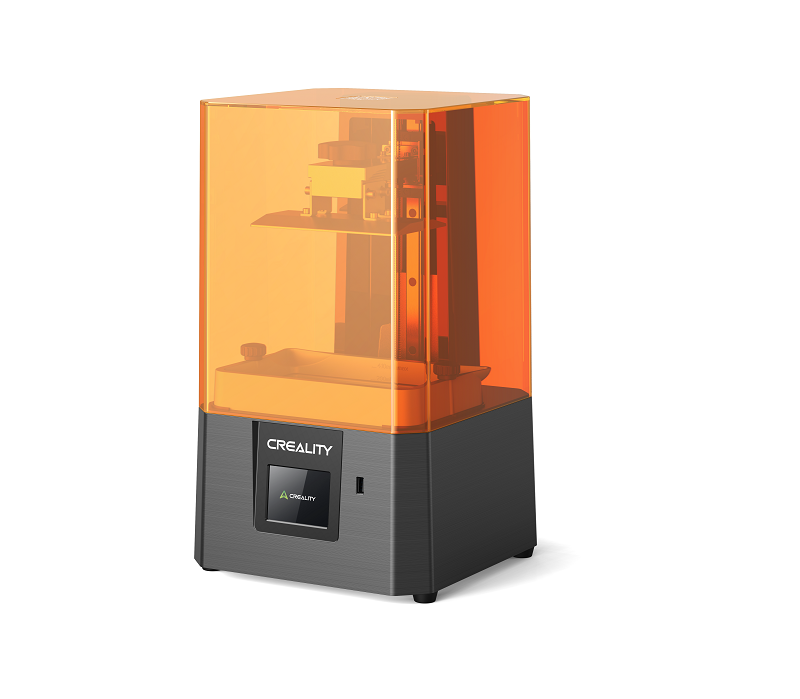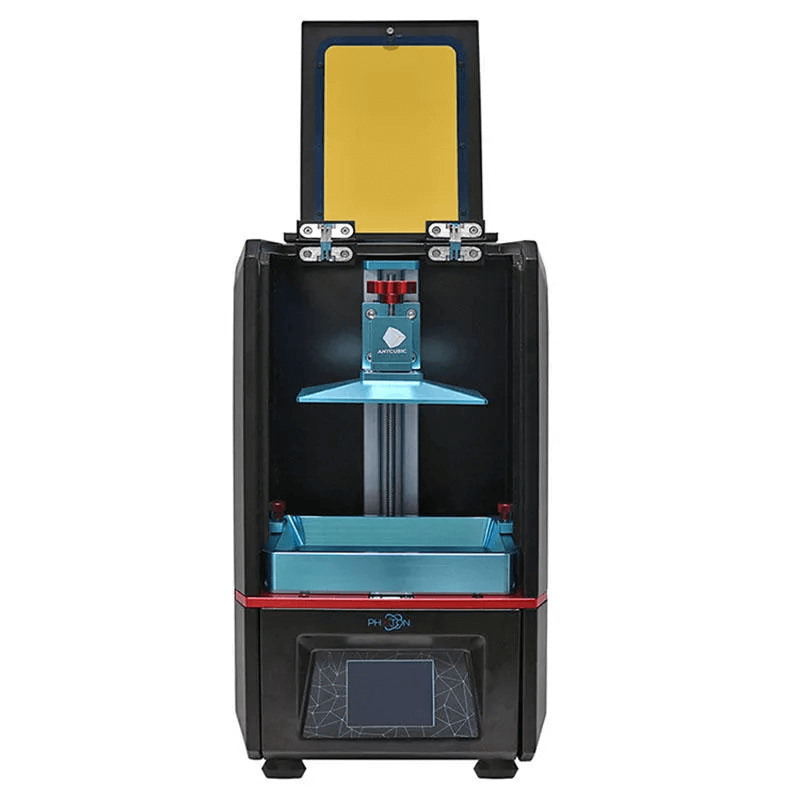Compare Halot R6 vs Photon
Comparison between the best 3D printers
Choose the best 3D printer at the best price. The cheapest 3D printers are here.
Buy a 3D printer here with 3D Fila.
 |
 |
|
| Model | Halot R6[BUY Halot R6] |
Photon |
| Printing Material | Resin | Resin |
| Buy Resin for Creality Halot R6 | Buy Resin forAnycubic Photon | |
| Estimated price | $129,00 | $100,00 |
| Manufacturer | Creality | Anycubic |
| Release Year | 2024 | 2019 |
| Print Volume [mm] | 130x82x160 | 65x115x155 |
| Printer Size [mm] | 235x230x395 | 220x200x400 |
| Weight [kg] | 5,8 | 7,2 |
| Power Loss Recovery | NO | NO |
| Technology | LCD | LCD |
| Screen Resolution | 14k | |
| Max Print Speed [s/layer] | 1 | 10 |
| Maximum Resolution [mm] | 0,01 | |
| Processor | ||
| Display | Touchscreen 2,8'' | Touchscreen TFT 3,5'' |
| Power Supply | 42W | 40W |
| Connectivity | USB drive, WiFi | USB |
| Operating systems | Windows, Mac | Windows, Mac, Linux |
| Date of registration in the system | 2024-12-05 | 2021-04-15 |
| Release date | 2024 | 2019 |
| Extra features | The Creality Halot R6 offers high precision with a layer height of 0.01-0.2 mm, a printing speed of 60 mm/h, and an integral light source with over 90% uniformity. Compact and lightweight, it features a 6.08" monochrome LCD for faster curing and extended durability. Includes Wi-Fi connectivity via Creality Cloud, an intuitive touchscreen interface, and supports remote monitoring and timelapse recording with a USB camera. Ideal for beginners, its robust and user-friendly. | The Anycubic Photon DLP is a resin 3D printer that stands out for its affordability and quality. It uses DLP (Digital Light Processing) technology to cure resin layers with precision, offering resolution of 25-100 microns. Its build volume is 115 x 65 x 155 mm, suitable for modest-sized projects. It includes a 2.8-inch touchscreen, USB and SD card connectivity, and a carbon filter to mitigate odors. It is notable for generating efficient support structures through its custom slicing software. Although it requires care in resin handling and post-processing, it is an excellent option for beginners and professionals who want to explore resin 3D printing with high resolution and ease of use. |
| Support for multiple colors and materials (AMS and CFS) | NO | NO |
Notes * |
||
| Cost-benefit | 9 / 10 | 6 / 10 |
| Hardware | 8 / 10 | 0 / 10 |
| Tela | . | . |
| Print volume | 3 / 10 | 3 / 10 |
| Performance | 9 / 10 | 0 / 10 |
| [BUY Halot R6] |
Conclusion |
| In comparing the Creality Halot R6 and the Anycubic Photon 3D printers, several key factors emerge that highlight their respective strengths and weaknesses. The Halot R6, released in 2024, is designed for higher precision and performance, boasting a larger print volume and a superior screen resolution. Its modern features, including Wi-Fi connectivity and an intuitive touchscreen interface, make it user-friendly and ideal for beginners and advanced users alike. The printer's speed and uniform light source contribute to its overall efficiency and reliability in producing high-quality prints. Conversely, the Anycubic Photon, an older model released in 2019, offers a budget-friendly option without compromising on quality. It is suitable for modest-sized projects and appeals to users who prioritize affordability. While it demonstrates effective resin printing capabilities, the Photon lacks some of the advanced features found in the Halot R6, which may limit its appeal for those seeking more versatile functionality. Considering the cost-benefit analysis, the Halot R6 scores higher in terms of hardware and performance, reflecting its newer technology and capabilities. In contrast, the Photon remains a viable choice for users on a budget who still want to experience high-resolution 3D printing. Ultimately, the choice between the two depends on user priorities: those looking for cutting-edge technology and enhanced performance may prefer the Halot R6, while budget-conscious individuals may find the Photon to be a satisfactory, efficient option. |

